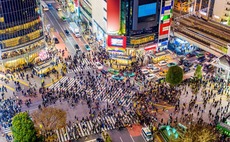
Apax benefits from Bright Food’s ambition
Apax Partners' 6x return on its investment in Israel-based Tnuva Food Industries has been hard earned.
"The team went from one farm to another throughout the country and participated in their conferences, sometimes 30 people, sometimes 200 people," says a source familiar with the investment.
It took two years to complete negotiations and close the transaction. Apax took a 56% stake in Tnuva with Mivtach Shamir, a local investment firm, buying 21%. The farmers held on to the remainder. The enterprise valuation was $1.4 billion.
Tnuva was founded as an agricultural cooperative of 620 farming communities who were also the company's suppliers of raw milk and fresh produce. When they agreed to a limited auction in 2006, there were 3-4 prospective buyers. Apax won out in part because Zehavit Cohen, the firm's Israel managing partner, reached out to all the owners.
"The team went from one farm to another throughout the country and participated in their conferences, sometimes 30 people, sometimes 200 people," says a source familiar with the investment.
Last week China's Bright Food Group agreed to buy Apax's interest in the business for around $1 billion in cash and assume responsibility for a portion of debt tied to the deal. The farmers will also exit. Apax's return comprises the cash payment from Bright Food plus dividends regularly taken out of the business during the ownership period.
"This is a great outcome for our partners and Tnuva's management, employees and other stake holders," Cohen said in a statement. "In recent years we worked prudently, together with management and employees, to transform Tnuva to a stronger company with excellent long-term prospects."
Progress was not always smooth. Tnuva is a dominant player in Israel, with revenues of ILS7.17 billion ($2 billion) in 2013 and market-leading positions across dairy products as well as a range of other fresh and frozen foods.
However, Tnuva faced a challenge in 2011 when Israel's major food producers were targeted as part of protests about rising living costs. This included a consumer boycott of cottage cheese, a segment in which Tnuva has a 70% market share.
The company responded to public pressure by lowering prices and it took over a year to stabilize the business and return it to a position of strength. "They had to work on pricing, launching new products and opening new channels of communication with consumers," the source explains.
Apax opted for a dual track exit, preparing for an IPO in Tel Aviv while considering trade sale options. The introduction to Bright Food came via Israel-based employee at accounting firm BDO who was aware of the Chinese company's keenness not only to expand but also to gain access to technologies and expertise.
This is the third time a private equity firm has exited an asset to Bright Food, following the acquisition of majority stakes in Australia's Manassen Foods and UK-based Weetabix from CHAMP Private Equity and Lion Capital, respectively.
Latest News
Asian GPs slow implementation of ESG policies - survey
Asia-based private equity firms are assigning more dedicated resources to environment, social, and governance (ESG) programmes, but policy changes have slowed in the past 12 months, in part due to concerns raised internally and by LPs, according to a...
Singapore fintech start-up LXA gets $10m seed round
New Enterprise Associates (NEA) has led a USD 10m seed round for Singapore’s LXA, a financial technology start-up launched by a former Asia senior executive at The Blackstone Group.
India's InCred announces $60m round, claims unicorn status
Indian non-bank lender InCred Financial Services said it has received INR 5bn (USD 60m) at a valuation of at least USD 1bn from unnamed investors including “a global private equity fund.”
Insight leads $50m round for Australia's Roller
Insight Partners has led a USD 50m round for Australia’s Roller, a venue management software provider specializing in family fun parks.







